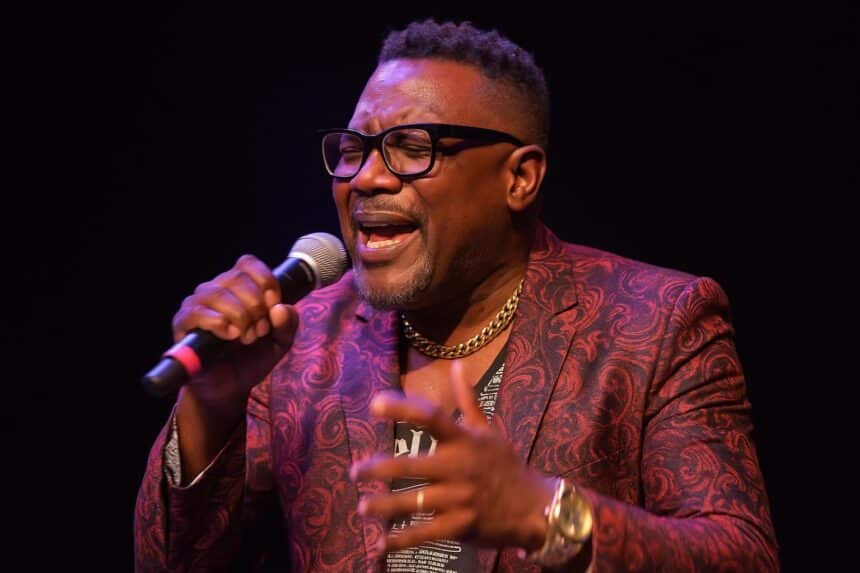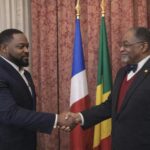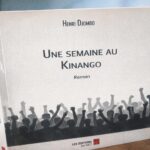Countdown to release
Abel Dibassa leans back in his Paris studio, headphones hanging around his neck, and smiles at the ticking clock. Nine years after his debut “Succession”, the singer says the wait for album two is “now only weeks, not months”, and the excitement feels contagious across his global audience.
He has named the new record “Nitu Ntoto”, a Lingala phrase he leaves deliberately open to interpretation. What matters, he insists, is the emotion the fifteen songs transmit, not literal translation. “Music travels faster than words,” he laughs, adjusting faders on the mixing desk in the late evening.
That calm confidence contrasts with the pressure he felt during production. Writing, rewriting, layering harmonies and perfecting beats kept him “alone against himself,” he recalls. Now, with masters delivered, he breathes easier, convinced any imperfections are simply proof that authentic art remains gloriously human in every wavering note.
Fifteen tracks, many influences
The track list zigzags through zouk, afro-beat, soukouss, rumba and even pop flourishes. Rather than prevent boredom, Dibassa says the genre-mix celebrates the diversity that first made him fall in love with sound. “True affection grows from difference,” he says, quoting an old family proverb learned in childhood.
In the studio he blended Congolese guitars with glossy Parisian synth pads, letting both breathe in the same space. Rhythm sections switch between straight dance-floor kicks and rolling percussion borrowed from village ceremonies, giving the record a forward thrust anchored in unmistakably Central African roots for global ears.
Early listeners report a cinematic atmosphere. Introductory interludes weave city soundscapes with rain from the Pool region, before sharp horn stabs announce festive segments. The contrasts, according to engineer Jules Lenoir, aim to reproduce “the feeling of walking through Brazzaville on a Saturday, headphone volume full.” for him
Languages that mirror identity
Dibassa sings in Lingala, French and Lari, refusing to privilege one tongue over another. “These languages are given facts of my existence,” he remarks. Their coexistence on the album mirrors his own journey from Ouenzé commune to Paris’s multicultural suburbs, and the dual nostalgia that follows him everywhere.
Switching idioms also broadens emotional range. Where Lingala offers fluid romance, French brings crystalline reflection, and Lari carries earthy humour. The singer treats each like a different instrument, sliding between them mid-verse to underline changes in mood, the way a guitarist might leap from clean strum to distorted solo.
He admits the approach complicates radio marketing, yet trusts modern streaming listeners to appreciate polyglot storytelling. Platforms from Brazzaville to Montreal already place Congolese playlists side by side with Caribbean and European catalogs, a context where border-crossing songs may find quicker adoption than ever before in coming months.
Stories of love, betrayal, resilience
One standout, “Nkutu Ma tchacha”, sung in Lari, explores betrayal through allusion. A man, stripped of words by heartbreak, hints at pain rather than naming it. Dibassa sees the narrative as universal: wounds that some overcome with dignity while others carry forever, depending on the melodies they choose afterward.
Elsewhere, uptempo horns celebrate reunions after migration, while ballads chronicle long-distance parenting via night video calls. Even the dance numbers, he argues, contain shadows. “Joy is deeper when it remembers the struggle behind it,” he explains, echoing Congolese literary traditions mixing celebration and critique in the same verse.
Live plans from France to Congo
The artist describes the stage as his true adrenaline. Plans are forming for a release tour starting in French clubs before crossing the Atlantic to Brazzaville, Pointe-Noire and possibly Libreville. Technical riders are ready; the only missing element is a definitive schedule, which management says will drop soon.
Dibassa hopes the homecoming gigs echo memories of earlier years singing at neighborhood weddings, where generator buzz blended with laughter until sunrise. This time, upgraded lights and video screens will accompany the band, yet he vows to keep ticket prices family-friendly, mindful of living costs facing local fans.
Streaming may open borders, but he believes applause in the same air remains irreplaceable. “A show lets you see whether songs truly breathe,” he notes. Between sets, workshops with music students are planned, allowing him to pass on arranging tips he once learned from elders in Makélékélé district.
Eyes on the Congolese music scene
Industry observers say the release could boost global curiosity about modern Congolese sounds already bubbling online. Playlist curator Diane Massamba predicts several tracks will slip into African-diaspora parties across Europe by Christmas, thanks to bilingual hooks and guitar riffs that nod respectfully to classic rumba without sounding retro.
For Dibassa, commercial expectations remain secondary to connection. He recalls a fan who once travelled fifty kilometres on a moto just to gift a mango after a gig. “That sweetness lasts longer than any chart position,” he says, closing the interview as studio lights dim for mixing tweaks.





















